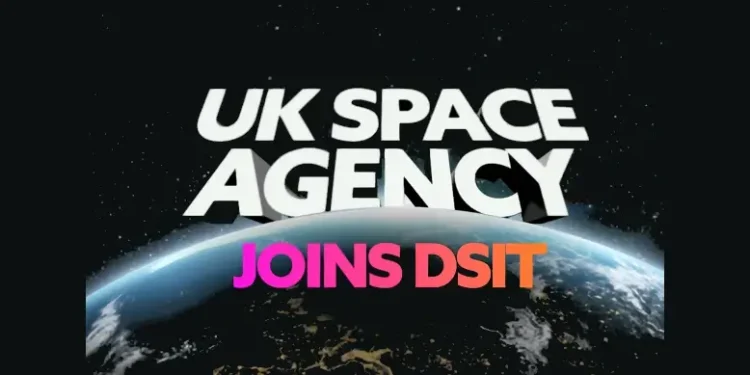The UK Space Agency (UKSA) will merge with the Department for Science, Innovation and Technology (DSIT) by April 2026, aiming to streamline support for the UK’s burgeoning space industry.
This move is expected to enhance ministerial oversight, cut bureaucracy, and unlock a £2.7 billion market by 2031, potentially creating thousands of skilled jobs.
Streamlining the UK Space Sector
The merger of the UK Space Agency into DSIT represents a significant shift in how the UK government supports its space industry.
By integrating policy and delivery teams while maintaining the UKSA brand, this move aims to improve efficiency and accountability within the sector. The focus on emerging space activities such as satellite repair and in-orbit servicing is expected to create numerous job opportunities.
Opportunities for Growth
- Potential creation of thousands of skilled jobs in satellite repair and debris removal
- Aim to capture a quarter of the global in-orbit servicing market
- Streamlined processes could accelerate innovation and investment
- Enhanced ministerial oversight for better governance
- Focus on sustainability aligns with global efforts for safe space operations
Effects on Daily Life
The changes promise improved efficiency in government support and regulation, which could translate into more rapid development of space technologies that impact daily life—such as better satellite services for communications, navigation, and environmental monitoring.
Businesses working with the UK Space Agency will see no immediate changes to contracts or grants, ensuring continuity.
Industry Collaboration
Industry experts from Astroscale, ClearSpace, and D-Orbit have collaborated on regulatory sandbox reports to shape safe and innovative space operations.
These collaborations are crucial in addressing bottlenecks faced by the industry today. The recommendations provide clarity and confidence needed by investors while positioning the UK as a leader in this transformative sector.
A Broader Government Strategy
This merger aligns with the government’s broader Plan for Change aimed at reducing bureaucracy across Whitehall.
It follows recommendations from the Space Regulatory Review to create regulatory sandboxes for innovative missions. This trend towards agile governance reflects similar approaches seen in other sectors.
Ministerial Quotes
Space Minister Sir Chris Bryant said:
“You don’t need to be a rocket scientist to see the importance of space to the British economy. This is a sector that pulls investment into the UK, and supports tens of thousands of skilled jobs right across the country, while nearly a fifth of our GDP is dependent on satellites. The aims for growth and security at the heart of our Plan for Change can’t be met without a vibrant space sector.
Bringing things in house means we can bring much greater integration and focus to everything we are doing while maintaining the scientific expertise and the immense ambition of the sector.”
UK Space Agency CEO Dr Paul Bate said:
“I strongly welcome this improved approach to achieving the government’s space ambitions. Having a single unit with a golden thread through strategy, policy and delivery will make it faster and easier to translate the nation’s space goals into reality.
In coming together, the UK Space Agency and space policy colleagues are building on the firm foundations of economic growth and capability development laid in recent years, including cutting-edge missions, major national programmes, and the regulations that enable UK launch and leadership in space sustainability.”
Additional Reading
A Parting Shot
The integration of UKSA into DSIT marks a pivotal moment for Britain’s space ambitions.
By streamlining processes and focusing on sustainability, this merger not only promises economic growth but also positions the UK as a leader in global space governance.
As these reforms unfold, they hold potential benefits for both industry stakeholders and everyday citizens alike.
Discover more of More of Todays Top Breaking Government News Stories!
Sources: UK Government, Department for Science, Innovation and Technology, UK Space Agency and Sir Chris Bryant MP.
Prepared by Ivan Alexander Golden, Founder of THX News™, an independent news organization delivering timely insights from global official sources. Combines AI-analyzed research with human-edited accuracy and context.








